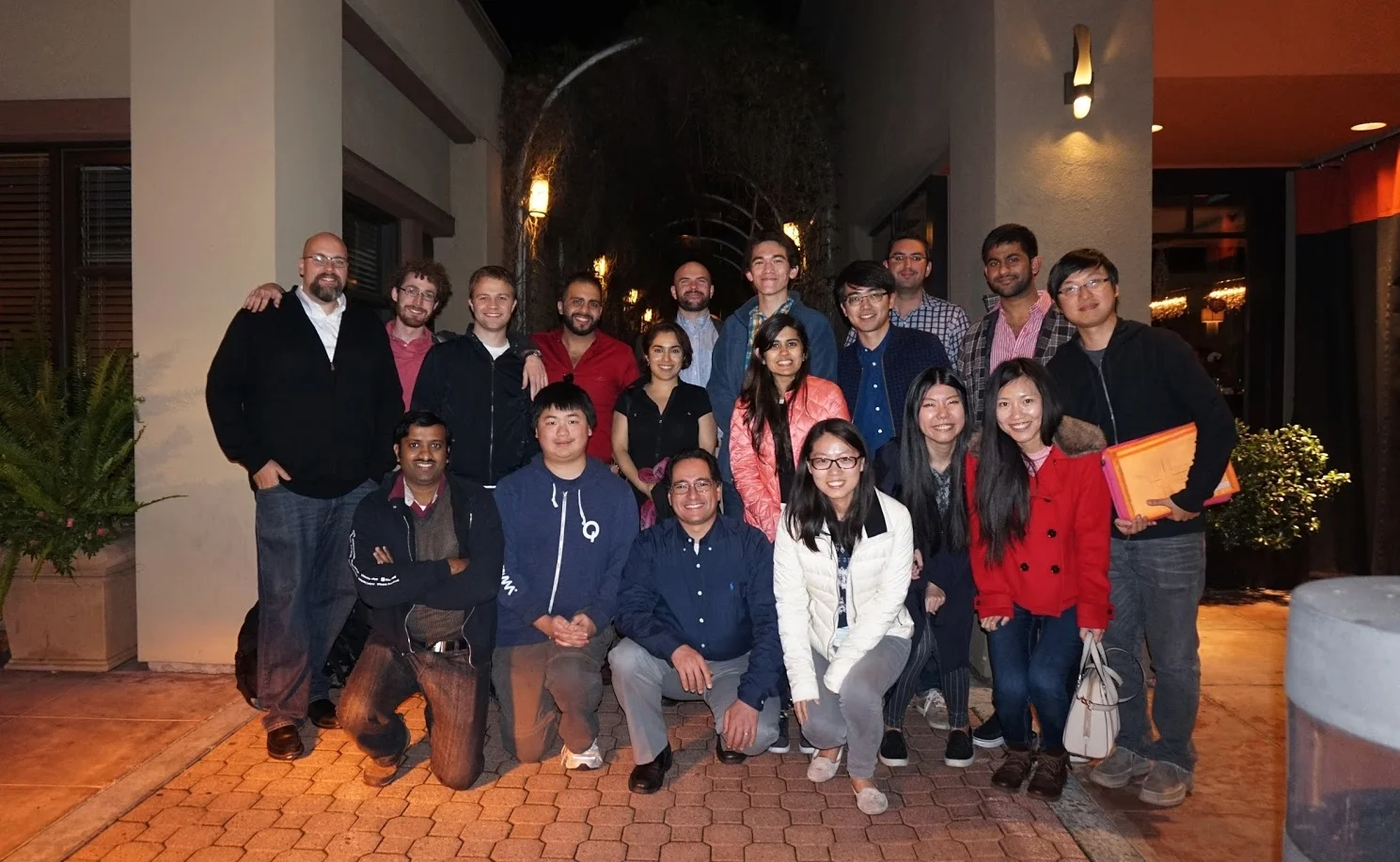Research Opportunities in the ArchLab
outside the engineering cafe
advait with the first delay coded system back from fab
A 2 min walk from our lab helps inspire new ideas
For Ph.D. Students
We are always looking to recruit a diverse set of students for the lab that are willing to dive in to projects ranging from languages, to hardware-assisted machine learning, to low-level devices, to compilers, to security and operating systems -- basically anything that helps us build radically different computing systems from the underlying physics up to the end application and user interface! The primary pre-requisites are good reading and writing skills, a broad background in computer science and engineering, a willingness to work on problems that we explore and define as we go, and the time to put into learning how to be an amazing researcher. While I always like hearing from potential students from outside of UCSB, unfortunately I now just get so many emails in a day that I can't reply to them all. I will read your CV and certainly appreciate hearing you are interested in the ArchLab, but I can't give feedback on chances of admission. I keep a smaller lab with minimal postdocs and a few Ph.D. students (roughly 4 to 7) so I get one-on-one time with all of my students. My smaller lab means that Ph.D. students are funded off of my research grants nearly at 100% rate and have been pretty successful in publishing in top venues and advancing their careers. If you are considering joining our lab I recommend you reach out to one of my current or former Ph.D. students as they the ones best qualified to tell you what it is like here!
For B.S. and M.S. Students
Current UCSB Undergrads, including Computer Science, Computer Engineering, Electrical Engineering, and College of Creative Studies students and both CS and ECE M.S. students looking for a projects are invited to contact me. However, I highly encourage you to try and first connect up with one of my Ph.D. students to give you a sense of the scope of work happening right now. If you are looking for units, there are options for 1, 2, and 4 units and I refer you to my description of units and funding for B.S. and M.S. students.
A great way to get started is to read through the abstracts of some of our most recent papers and poke around in our github account. Our PyRTL and CHARM projects are a gateway to many other projects and is the infrastructure on which most of our prototypes are built (if you can program Python you can build hardware!). Looking at the "beginner friendly" tags in particular can be a great way to start, but honestly even a commit or two to improve the documentation or increase our test coverage show some commitment that will get students excited about working with you. Working on research is a great way to see the real potential in your chosen profession. Defining your own problem within the scope a larger project is a great skill to develop!
Prof. Sherwood talking at a Symposium of ArchLab Almuni in San Francisco





